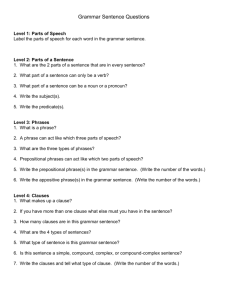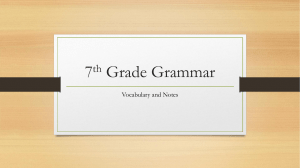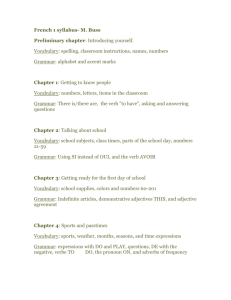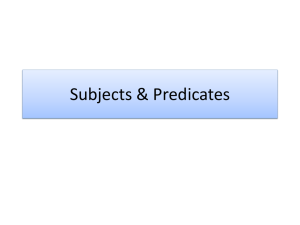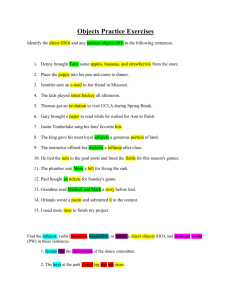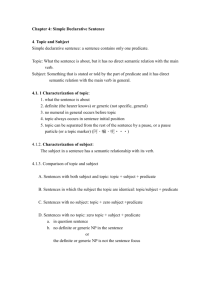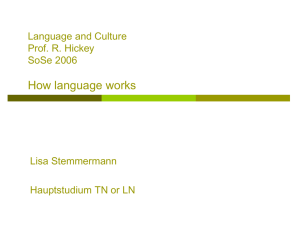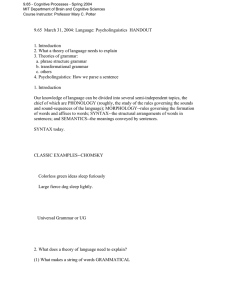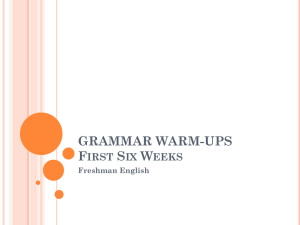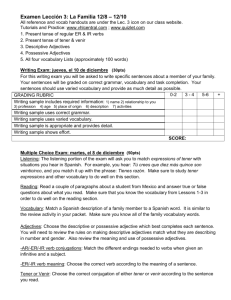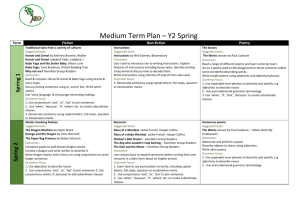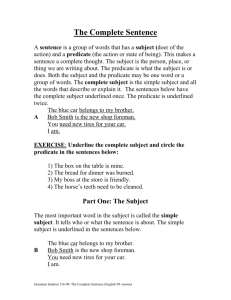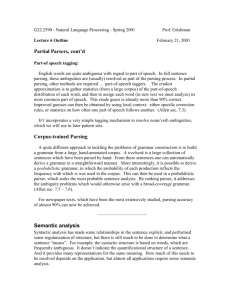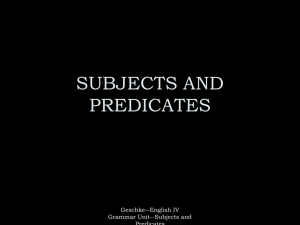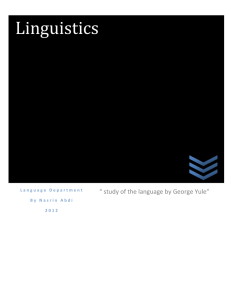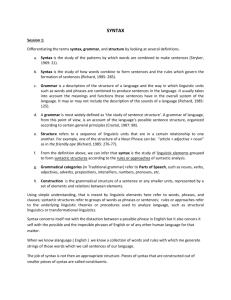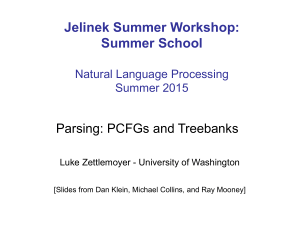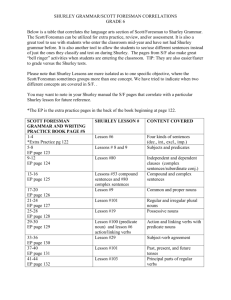Direct and Indirect Objects and Subject Complements
advertisement
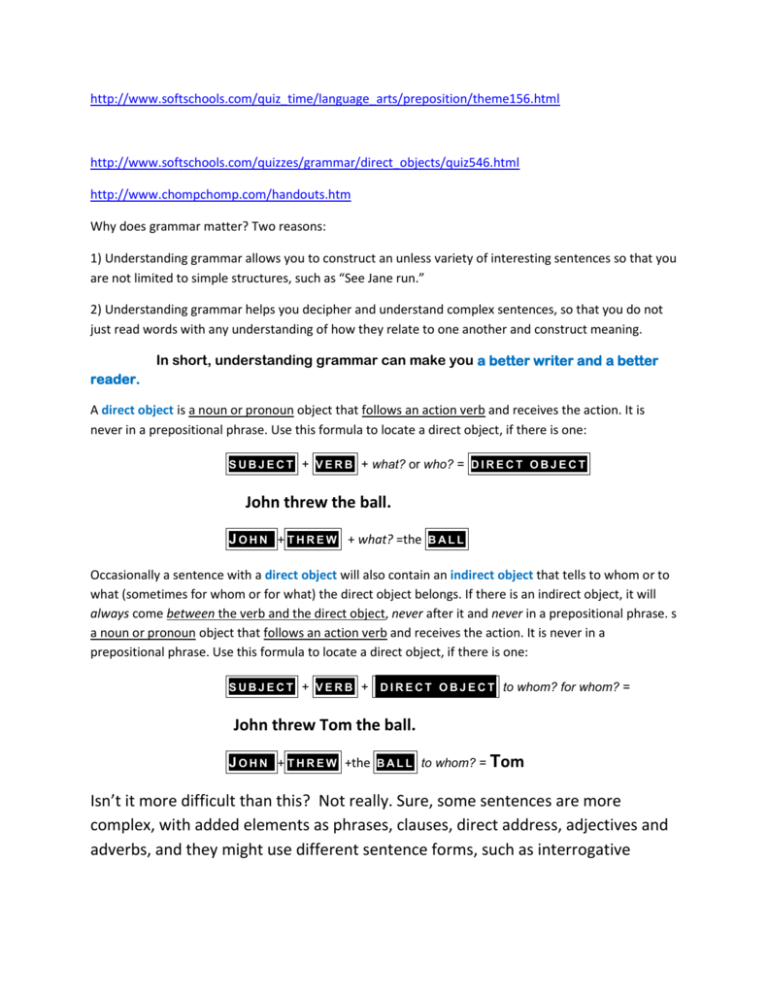
http://www.softschools.com/quiz_time/language_arts/preposition/theme156.html http://www.softschools.com/quizzes/grammar/direct_objects/quiz546.html http://www.chompchomp.com/handouts.htm Why does grammar matter? Two reasons: 1) Understanding grammar allows you to construct an unless variety of interesting sentences so that you are not limited to simple structures, such as “See Jane run.” 2) Understanding grammar helps you decipher and understand complex sentences, so that you do not just read words with any understanding of how they relate to one another and construct meaning. In short, understanding grammar can make you a better writer and a better reader. A direct object is a noun or pronoun object that follows an action verb and receives the action. It is never in a prepositional phrase. Use this formula to locate a direct object, if there is one: S U B J E C T + V E R B + what? or who? = D I R E C T O B J E C T John threw the ball. J O H N + T H R E W + what? =the B A L L Occasionally a sentence with a direct object will also contain an indirect object that tells to whom or to what (sometimes for whom or for what) the direct object belongs. If there is an indirect object, it will always come between the verb and the direct object, never after it and never in a prepositional phrase. s a noun or pronoun object that follows an action verb and receives the action. It is never in a prepositional phrase. Use this formula to locate a direct object, if there is one: SUBJECT + VERB + D I R E C T O B J E C T to whom? for whom? = John threw Tom the ball. J O H N + T H R E W +the B A L L to whom? = Tom Isn’t it more difficult than this? Not really. Sure, some sentences are more complex, with added elements as phrases, clauses, direct address, adjectives and adverbs, and they might use different sentence forms, such as interrogative (questions) and imperative sentences (commands with an understood you as the subject), but the positions and questions are the same. Example Question: Have you seen the new building downtown? YOU + HAVE SEEN + what? = BUILDING I may at first answer, “the new building downtown,” but then I will narrow that phrase to just the noun building, since building is the thing and downtown is where it is not what it is. Example compound subjects and objects: Our rigorous year-round basketball training and hectic season leave athletes little time to socialize and even less energy to study for demanding classes. TRAINING whom? = and S E A S O N + L E A V E + what? T I M E or E N E R G Y to ATHLETES Do not confuse direct objects with subject complements (predicate nominatives or predicate adjectives) which come after linking verbs, such as am, is, are, and so forth. Subject complements come after linking verbs (not action verbs) and rename (predicate nominatives) or describe (predicate adjectives) the subject. Like a direct object, they answer what? John is tall. John is the captain of the team. J O H N + I S = tall S E A S O N TRAINING and S E A S O N
